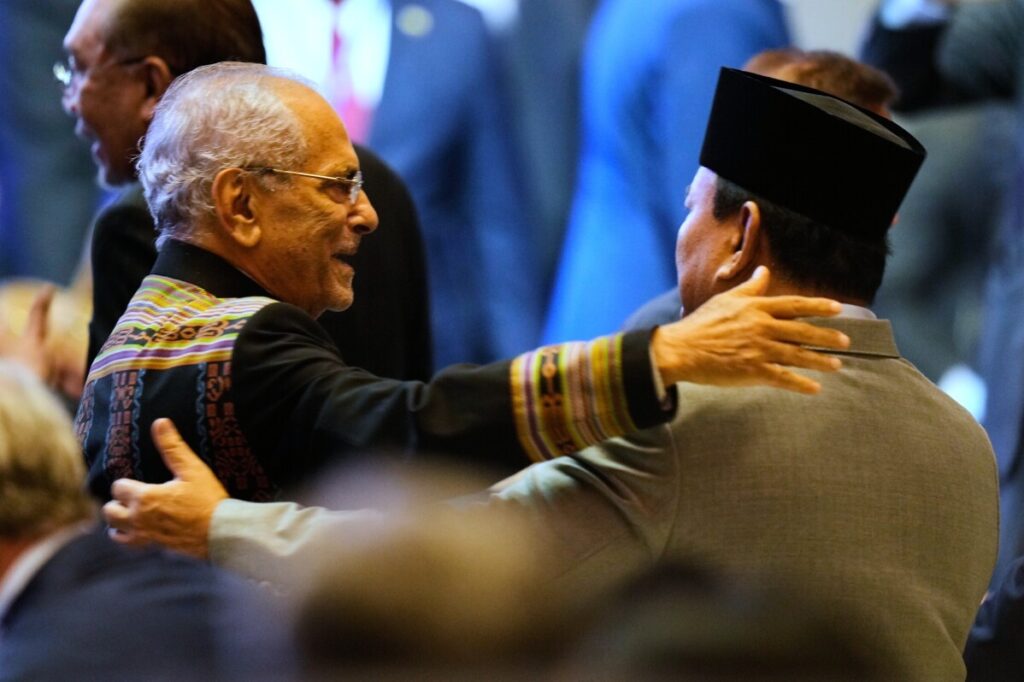Malaysia’s Anwar Pushes Dialogue Amid Rising US-China Rivalry at East Asia Summit
Malaysian Prime Minister Anwar Ibrahim calls for dialogue over coercion at the East Asia Summit, underscoring the urgent need for regional cooperation amid escalating US-China rivalry and its implications for American interests.

As geopolitical tensions between the United States and China reach new heights, Malaysian Prime Minister Anwar Ibrahim stood resolutely on Monday at the East Asia Summit, urging leaders across the Asia-Pacific region to embrace dialogue instead of coercion and cooperation rather than confrontation. This call comes at a critical moment when America’s strategic interests in Southeast Asia face tests from China’s assertive regional agenda.
Is Dialogue Enough When America Faces Growing Strategic Challenges?
Anwar’s opening remarks echoed a hopeful vision for multilateralism and international law. Yet beneath his optimistic tone lies a complex reality. The summit, bringing together ASEAN nations alongside heavyweights like China, Russia, India, Japan, and the United States, unfolds amid mounting competition that directly impacts America’s economic security and national sovereignty.
The recent moves by President Donald Trump to strengthen trade ties with Malaysia, Thailand, and Cambodia reflect an America First strategy aimed squarely at reducing dependency on China while securing access to vital minerals crucial for industrial growth and defense readiness. These agreements aren’t just diplomatic gestures—they are vital maneuvers in safeguarding America’s economic future against Beijing’s expanding footprint through initiatives like the Belt and Road.
ASEAN’s Tightrope: Navigating Great Power Rivalry Without Sacrificing Sovereignty
The summit reveals ASEAN’s fragile balancing act — striving to maintain neutrality even as China pushes sovereignty claims in the South China Sea and promotes connectivity projects that risk entangling nations under Beijing’s influence. While Anwar advocates for a “Code of Conduct” to govern these maritime disputes within ASEAN frameworks, one must ask: can regional dialogue shield U.S. allies from coercive tactics without robust American engagement?
Moreover, concerns about internal conflicts such as Myanmar’s ongoing civil war emphasize the limitations of diplomacy when rogue regimes threaten stability—not only regionally but also with spillover effects on global peace that ultimately affect U.S. security interests.
This summit underscores a larger truth—America cannot afford disengagement or reliance on ambiguous calls for cooperation alone. Washington must continue advancing pragmatic policies that champion freedom of navigation, uphold international laws favorable to American values, and support allies confronting authoritarian pressure.
The ongoing tariffs debate further complicates economic relations within this critical region. While Canada moves swiftly to expand free trade talks with ASEAN partners as a hedge against U.S.-imposed tariffs disrupting supply chains, America’s unpredictable trade stance risks alienating potential partners in a competitive global economy.
The question remains: Will Washington leverage these regional forums effectively to protect American sovereignty and prosperity? Or will it allow its influence to be eclipsed by Beijing’s strategic ambitions? For hardworking Americans watching their economy weather global shocks and inflationary pressures at home, these developments are far more than distant diplomatic maneuvering—they represent issues of national survival.
